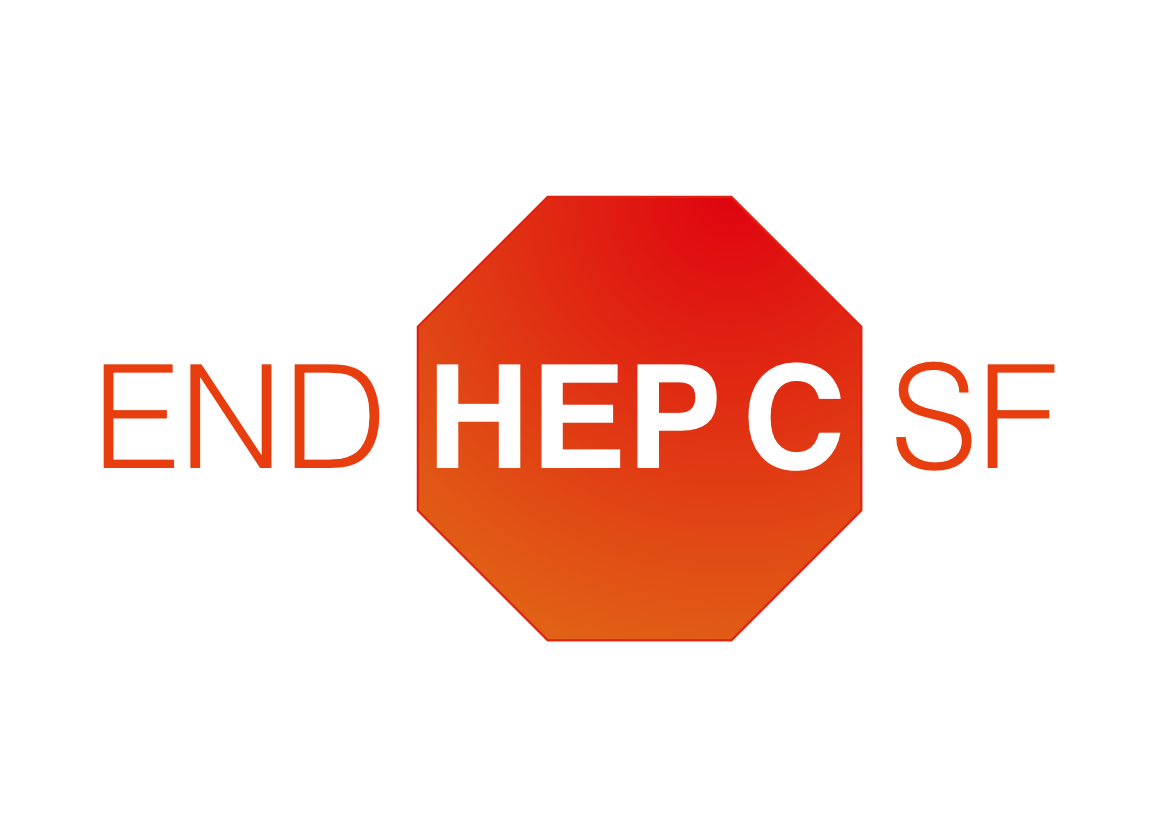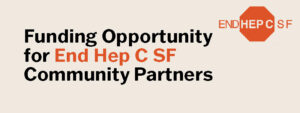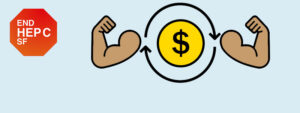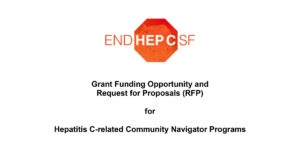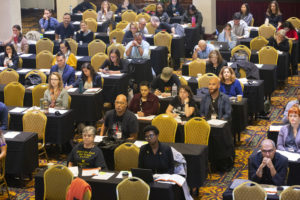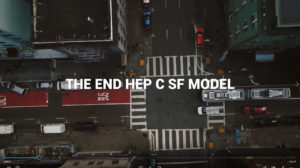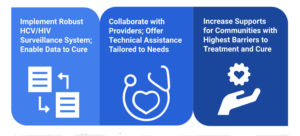Eliminating Hepatitis C in San Francisco: Why Now?
San Francisco is profoundly impacted by the hepatitis C virus (HCV), a chronic liver disease easily transmitted to others through blood-to-blood contact. HCV is a significant driver of morbidity, liver cancer, and death. The availability of highly effective HCV treatment that is taken through an oral pill with few side effects gives us the remarkable ability to cure HCV in nearly all infected patients.
We now have the tools to greatly reduce HCV-related morbidity and mortality, to break the cycle of forward transmission through treatment as prevention, and to ultimately eliminate HCV in San Francisco. To realize the potential of modern HCV therapy, in 2016 the San Francisco Department of Public Health (SFDPH), University of California, San Francisco (UCSF), and other community partners came together to establish the End Hep C SF initiative, a multi-sector independent consortium operating under the principles of collective impact.
Like many communicable diseases, HCV disproportionately impacts marginalized populations, specifically people who inject drugs, people who are homeless or marginally housed, people of color (most notably African Americans), and people living with HIV. San Francisco has a long history of implementing cutting-edge, evidence-based interventions such as syringe access, opiate replacement therapy, health coverage for uninsured individuals, and overdose prevention services.
